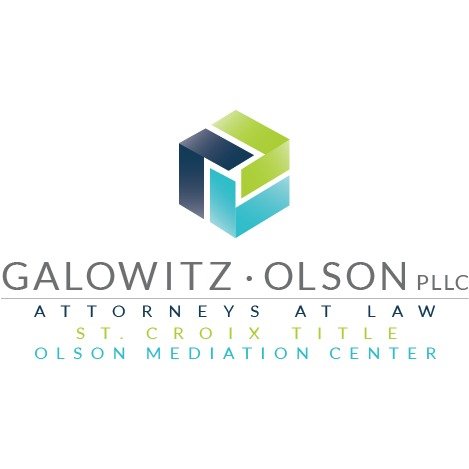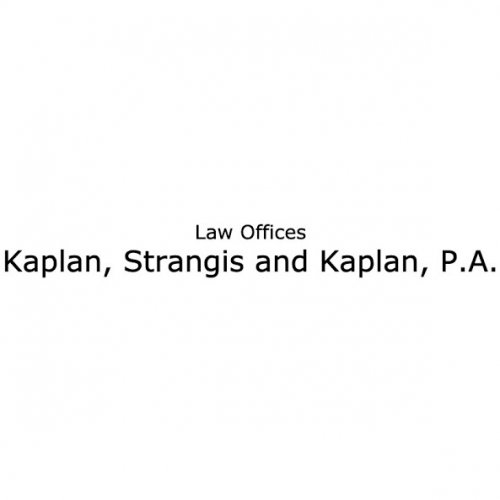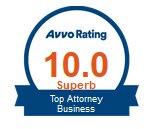Best Nonprofit & Charitable Organizations Lawyers in Minnesota
Share your needs with us, get contacted by law firms.
Free. Takes 2 min.
Or refine your search by selecting a city:
List of the best lawyers in Minnesota, United States
About Nonprofit & Charitable Organizations Law in Minnesota, United States
Nonprofit and charitable organizations in Minnesota are established to serve the public good, focusing on missions such as education, healthcare, arts, social services, and the environment. These organizations are typically structured to be tax-exempt and are governed by a combination of federal laws, Minnesota statutes, and regulations administered by state agencies. Minnesota is known for its supportive regulatory environment for nonprofits, but starting and maintaining a charitable organization here still requires meticulous compliance with both state and federal requirements. This includes rules about how organizations are formed, governed, and operated to maintain their good standing and tax-exempt status.
Why You May Need a Lawyer
There are several situations where legal guidance is essential for nonprofits in Minnesota. Whether you are starting a new organization, managing an existing one, or facing regulatory scrutiny, an attorney experienced in nonprofit law can help you navigate complex requirements. Common scenarios that may require legal help include:
- Forming and incorporating a new nonprofit or charitable organization
- Applying to the Internal Revenue Service for tax-exempt status (such as 501(c)(3))
- Drafting or amending bylaws, articles of incorporation, or governance policies
- Understanding and fulfilling state registration and reporting obligations
- Resolving disputes among board members or with donors
- Ensuring proper fundraising practices and managing charitable solicitations
- Adhering to employment laws as they apply to nonprofit employers
- Navigating mergers, dissolutions, or significant changes in mission or structure
- Risk management and liability concerns for directors and officers
- Responding to audits or investigations from governmental agencies
Local Laws Overview
In Minnesota, nonprofit and charitable organizations are primarily governed by Chapter 317A of the Minnesota Statutes, known as the Minnesota Nonprofit Corporation Act. This law sets forth how nonprofits are formed, governed, and dissolved. In addition, the Minnesota Attorney General’s Office oversees charities, particularly for issues related to fundraising, use of charitable assets, and consumer protection.
All nonprofits conducting charitable solicitation in Minnesota must register with the Attorney General’s Office unless exempt. Annual reporting, including financial disclosures, is also required. Nonprofits must also comply with the federal Internal Revenue Code for tax-exempt status, and follow IRS rules on permissible activities, reporting, and political engagement. Minnesota has unique requirements for board governance, conflict-of-interest policies, and asset management that organizations must observe to avoid penalties and preserve their reputations.
Frequently Asked Questions
What is required to start a nonprofit in Minnesota?
You must file articles of incorporation with the Minnesota Secretary of State, adopt bylaws, appoint a board of directors, and obtain an Employer Identification Number. Most nonprofits also seek IRS recognition as a tax-exempt organization.
Do I need to register my organization with the Minnesota Attorney General?
Most charitable organizations soliciting donations in Minnesota must register with the Attorney General’s Charities Division and submit annual reports. Some limited exemptions exist for educational, religious, and certain other organizations.
What is the difference between a Minnesota nonprofit and a 501(c)(3)?
A Minnesota nonprofit is an organization incorporated under Minnesota state law. A 501(c)(3) is a federal tax-exempt status under the IRS code, often sought after incorporation.
How many board members are required for a Minnesota nonprofit?
Minnesota law requires at least three directors on the board for a nonprofit corporation.
Can a nonprofit pay its board members?
Board members can be reimbursed for reasonable expenses but are generally not compensated for their board service. However, specific compensation is allowed for other services provided to the organization provided there are no conflicts of interest and it is properly disclosed.
Are nonprofit financial records public in Minnesota?
Certain nonprofit financial records, such as IRS Form 990, must be made publicly available. The Minnesota Attorney General’s Office also posts annual reports for many organizations.
Can a nonprofit engage in political activities?
501(c)(3) organizations are prohibited from engaging in partisan political activity. They may engage in limited lobbying, but must follow both IRS and Minnesota rules to avoid jeopardizing their tax-exempt status.
What are common compliance issues for Minnesota nonprofits?
Common issues include failing to maintain annual registration, incomplete or inaccurate financial reporting, governance lapses, and improper fundraising practices.
How can nonprofits protect their board and staff from liability?
Organizations can minimize risk by maintaining good governance practices, securing proper insurance (like Directors and Officers insurance), and ensuring compliance with all applicable laws and regulations.
What happens if a nonprofit dissolves in Minnesota?
Upon dissolution, any remaining assets must be distributed to another nonprofit or charitable organization in accordance with Minnesota law and the IRS regulations.
Additional Resources
If you need further information or guidance on nonprofit and charitable organizations in Minnesota, several resources are available:
- Minnesota Attorney General’s Office - Charities Division: Oversees charitable registration, annual reporting, and enforcement of laws related to charitable organizations.
- Minnesota Secretary of State: Handles incorporation filings and provides information on maintaining good standing for nonprofits.
- Internal Revenue Service (IRS) - Exempt Organizations: Offers guidance on federal tax exemption, application forms, and compliance requirements.
- Minnesota Council of Nonprofits: A membership organization offering legal tools, best practices, and advocacy for nonprofits statewide.
- Pro Bono Legal Services: Organizations like Volunteer Lawyers Network and LegalCORPS assist nonprofits in need of legal representation or advice.
Next Steps
If you are planning to establish, operate, or manage a nonprofit or charitable organization in Minnesota, consider taking these actions:
- Identify your goals and assess whether forming a nonprofit is the right step for your mission.
- Consult with a qualified attorney who specializes in nonprofit law to ensure you understand and comply with all state and federal requirements.
- Prepare and file the necessary organizational documents, such as articles of incorporation and bylaws.
- Register with applicable state agencies, such as the Minnesota Secretary of State and the Attorney General’s Office.
- Apply for federal tax-exempt status through the IRS and maintain compliance with ongoing reporting requirements.
- Attend workshops and training sessions offered by local nonprofit support organizations to build your knowledge base.
- Seek out pro bono legal assistance if you are a small organization with limited resources.
Starting or maintaining a nonprofit organization can be complex and requires careful attention to detail. Early legal advice can prevent costly mistakes and help your organization focus on its mission. Take the time to research, plan, and consult with professionals at each stage of your nonprofit journey.
Lawzana helps you find the best lawyers and law firms in Minnesota through a curated and pre-screened list of qualified legal professionals. Our platform offers rankings and detailed profiles of attorneys and law firms, allowing you to compare based on practice areas, including Nonprofit & Charitable Organizations, experience, and client feedback.
Each profile includes a description of the firm's areas of practice, client reviews, team members and partners, year of establishment, spoken languages, office locations, contact information, social media presence, and any published articles or resources. Most firms on our platform speak English and are experienced in both local and international legal matters.
Get a quote from top-rated law firms in Minnesota, United States — quickly, securely, and without unnecessary hassle.
Disclaimer:
The information provided on this page is for general informational purposes only and does not constitute legal advice. While we strive to ensure the accuracy and relevance of the content, legal information may change over time, and interpretations of the law can vary. You should always consult with a qualified legal professional for advice specific to your situation.
We disclaim all liability for actions taken or not taken based on the content of this page. If you believe any information is incorrect or outdated, please contact us, and we will review and update it where appropriate.
Browse nonprofit & charitable organizations law firms by city in Minnesota
Refine your search by selecting a city.












